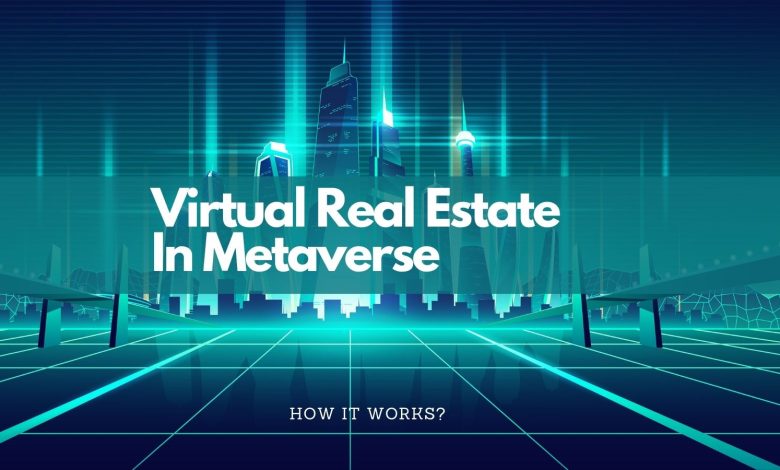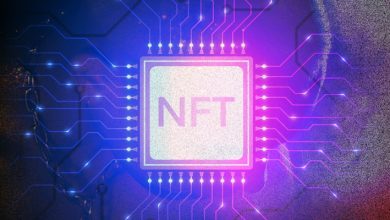NFTs in Virtual Real Estate: Metaverse and Beyond

- Understanding the concept of NFTs in virtual real estate
- Exploring the potential of NFTs in the Metaverse
- The rise of NFTs as a game-changer in virtual property ownership
- Navigating the legal implications of NFTs in virtual real estate
- Investing in virtual real estate through NFTs: A beginner’s guide
- Challenges and opportunities for NFTs in the evolving landscape of virtual real estate
Understanding the concept of NFTs in virtual real estate
Understanding the concept of NFTs in virtual real estate is crucial in navigating the evolving landscape of the metaverse and beyond. NFTs, or non-fungible tokens, represent unique digital assets that are stored on a blockchain. In the context of virtual real estate, NFTs can be used to denote ownership of virtual land, buildings, or other virtual properties.
One of the key advantages of using NFTs in virtual real estate is the ability to establish verifiable ownership and scarcity of digital assets. This can create a sense of exclusivity and value for virtual properties, similar to how physical real estate operates in the real world. Additionally, NFTs allow for easy transfer of ownership, enabling users to buy, sell, and trade virtual properties with ease.
As the metaverse continues to expand and virtual worlds become more immersive, the concept of NFTs in virtual real estate is likely to play a significant role in shaping the future of digital ownership. By understanding how NFTs work and their potential applications in virtual real estate, individuals and businesses can position themselves to take advantage of this emerging trend.
Exploring the potential of NFTs in the Metaverse
Exploring the potential of Non-Fungible Tokens (NFTs) in the Metaverse opens up a world of possibilities for virtual real estate and beyond. NFTs have gained significant traction in recent years as a unique form of digital asset that represents ownership of a specific item or piece of content. In the context of the Metaverse, NFTs can be used to buy, sell, and trade virtual properties, avatars, and other digital assets.
One of the key advantages of using NFTs in the Metaverse is the ability to establish true ownership and scarcity of virtual assets. This can create a sense of exclusivity and value for digital properties, similar to how physical real estate operates in the real world. Additionally, NFTs can enable creators to monetize their virtual creations by selling them as unique, one-of-a-kind assets.
Furthermore, NFTs can also facilitate interoperability between different virtual worlds within the Metaverse. By using NFTs as a standard for representing digital assets, users can easily transfer their assets between different platforms and experiences. This seamless integration can enhance the overall user experience and create a more cohesive virtual environment.
The rise of NFTs as a game-changer in virtual property ownership
The rise of Non-Fungible Tokens (NFTs) has revolutionized the concept of virtual property ownership in the Metaverse and beyond. NFTs have emerged as a game-changer in the digital realm, allowing users to buy, sell, and trade unique virtual assets with proof of ownership stored on the blockchain.
Unlike traditional cryptocurrencies, NFTs are indivisible and cannot be exchanged on a like-for-like basis. Each NFT is one-of-a-kind, making it a valuable digital asset in the virtual real estate market. This uniqueness has sparked a frenzy of interest among investors, collectors, and gamers looking to capitalize on the growing trend.
With NFTs, virtual property ownership is no longer limited to in-game items or virtual real estate. Artists, musicians, and content creators are now leveraging NFTs to monetize their digital creations, offering fans and supporters a chance to own a piece of the virtual world.
As the popularity of NFTs continues to soar, the virtual real estate market is experiencing a paradigm shift. The concept of ownership in the Metaverse is being redefined, with NFTs at the forefront of this digital revolution. Whether it’s virtual land, digital art, or in-game assets, NFTs are reshaping the way we perceive and interact with virtual property.
Navigating the legal implications of NFTs in virtual real estate
Navigating the legal implications of NFTs in virtual real estate can be a complex and challenging task. As the popularity of NFTs continues to grow, so do the legal considerations surrounding their use in the virtual real estate market. From issues related to intellectual property rights to questions about ownership and transferability, there are many legal aspects to consider when dealing with NFTs in virtual real estate transactions.
One of the key legal issues to consider when dealing with NFTs in virtual real estate is the question of ownership. Because NFTs are unique digital assets that exist on the blockchain, determining who owns a particular NFT and the virtual real estate it represents can be a complicated process. It is essential to ensure that the ownership of an NFT is clearly established and documented to avoid any disputes or legal challenges down the line.
Another important legal consideration when dealing with NFTs in virtual real estate is the issue of intellectual property rights. NFTs are often used to represent digital artworks or other creative works, which can raise questions about copyright and other intellectual property protections. It is crucial to ensure that the creator of the NFT has the necessary rights to the underlying work and that these rights are properly transferred when the NFT is bought or sold.
In addition to ownership and intellectual property rights, there are also legal considerations related to the transferability of NFTs in virtual real estate transactions. Because NFTs are bought and sold on the blockchain, it is essential to ensure that the transfer of an NFT is valid and legally binding. This may involve complying with specific legal requirements or regulations governing the transfer of digital assets.
Overall, navigating the legal implications of NFTs in virtual real estate requires a thorough understanding of the legal issues surrounding these unique digital assets. By carefully considering issues related to ownership, intellectual property rights, and transferability, individuals and businesses can ensure that their NFT transactions are legally sound and free from potential legal challenges.
Investing in virtual real estate through NFTs: A beginner’s guide
Investing in virtual real estate through NFTs can be a lucrative opportunity for those looking to diversify their investment portfolio. Non-fungible tokens (NFTs) have gained popularity in recent years as a way to buy, sell, and trade digital assets on the blockchain. Virtual real estate in the metaverse is a growing market that offers unique opportunities for investors to own virtual land, buildings, and other digital assets.
One of the key benefits of investing in virtual real estate through NFTs is the potential for high returns on investment. As the metaverse continues to expand and evolve, the value of virtual real estate is expected to increase significantly. By purchasing NFTs that represent ownership of virtual properties, investors can capitalize on this growth and potentially earn substantial profits in the long run.
Another advantage of investing in virtual real estate through NFTs is the ability to diversify one’s investment portfolio. Traditional real estate investments are often limited to physical properties in specific locations, but virtual real estate offers a new and innovative way to invest in digital assets that can be accessed from anywhere in the world. This diversification can help mitigate risk and protect against market fluctuations.
In addition to financial benefits, investing in virtual real estate through NFTs also offers unique opportunities for creativity and self-expression. Virtual worlds in the metaverse allow investors to design and customize their virtual properties, creating unique and personalized spaces that reflect their individual tastes and preferences. This creative aspect of virtual real estate investing can be both rewarding and enjoyable for investors looking to explore new ways of expressing themselves in the digital realm.
Overall, investing in virtual real estate through NFTs is a promising opportunity for those interested in exploring the potential of the metaverse and beyond. With the ability to earn high returns on investment, diversify one’s portfolio, and unleash creativity in virtual worlds, NFTs offer a unique and exciting way to participate in the growing market of virtual real estate. By understanding the basics of NFTs and virtual real estate investing, beginners can take advantage of this emerging opportunity and potentially reap the rewards of their investments in the digital realm.
Challenges and opportunities for NFTs in the evolving landscape of virtual real estate
As the landscape of virtual real estate continues to evolve, there are both challenges and opportunities for NFTs to play a significant role in shaping the future of this digital space. One of the main challenges facing NFTs in virtual real estate is the issue of scalability. With the increasing popularity of NFTs, there is a growing concern about the scalability of the blockchain networks that support these digital assets. This can lead to slower transaction times and higher fees, which can hinder the widespread adoption of NFTs in virtual real estate.
However, despite these challenges, there are also numerous opportunities for NFTs to revolutionize the virtual real estate market. One of the key opportunities lies in the ability of NFTs to provide true ownership of digital assets. By tokenizing virtual real estate assets as NFTs, individuals can have full control over their properties, including the ability to buy, sell, and trade them in a secure and transparent manner.
Another opportunity for NFTs in virtual real estate is the potential for increased liquidity in the market. By tokenizing real estate assets, owners can fractionalize their properties, allowing for more investors to participate in the market. This can lead to a more efficient and liquid real estate market, where assets can be bought and sold more easily.



